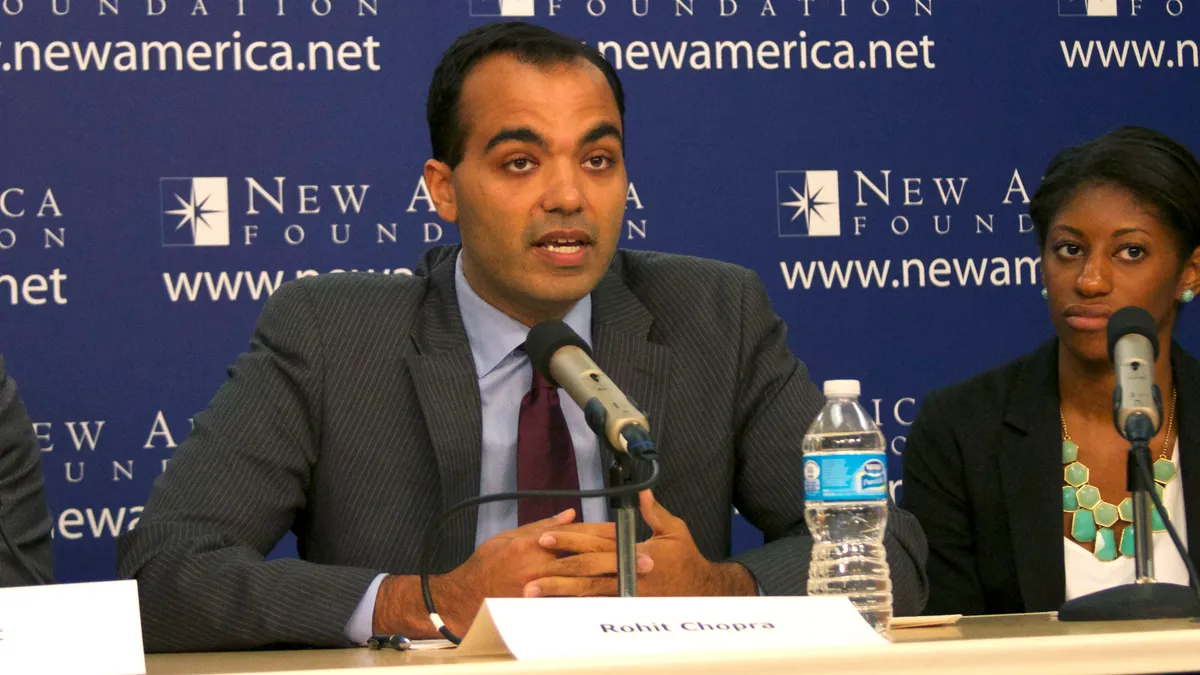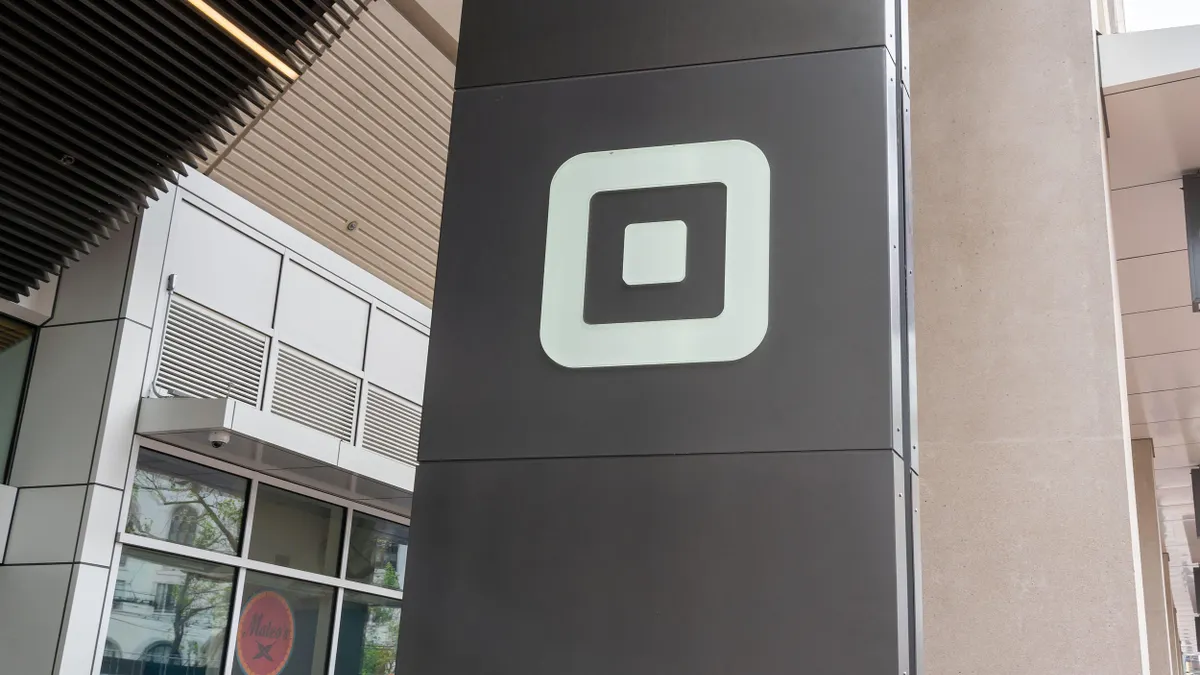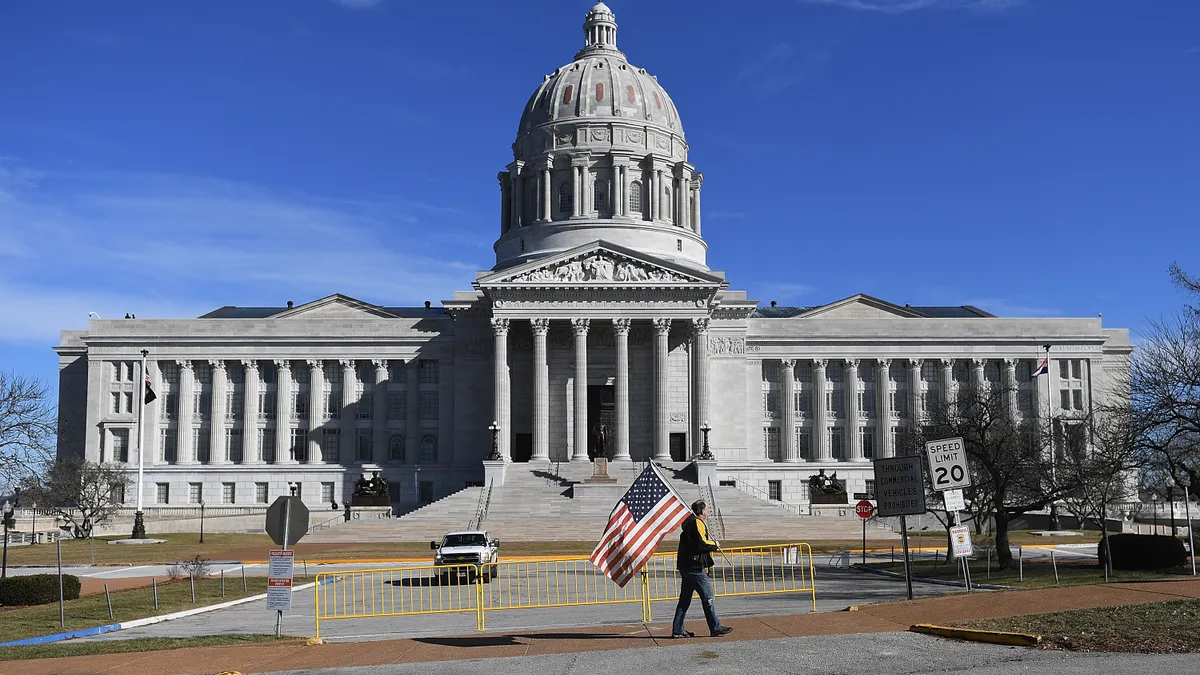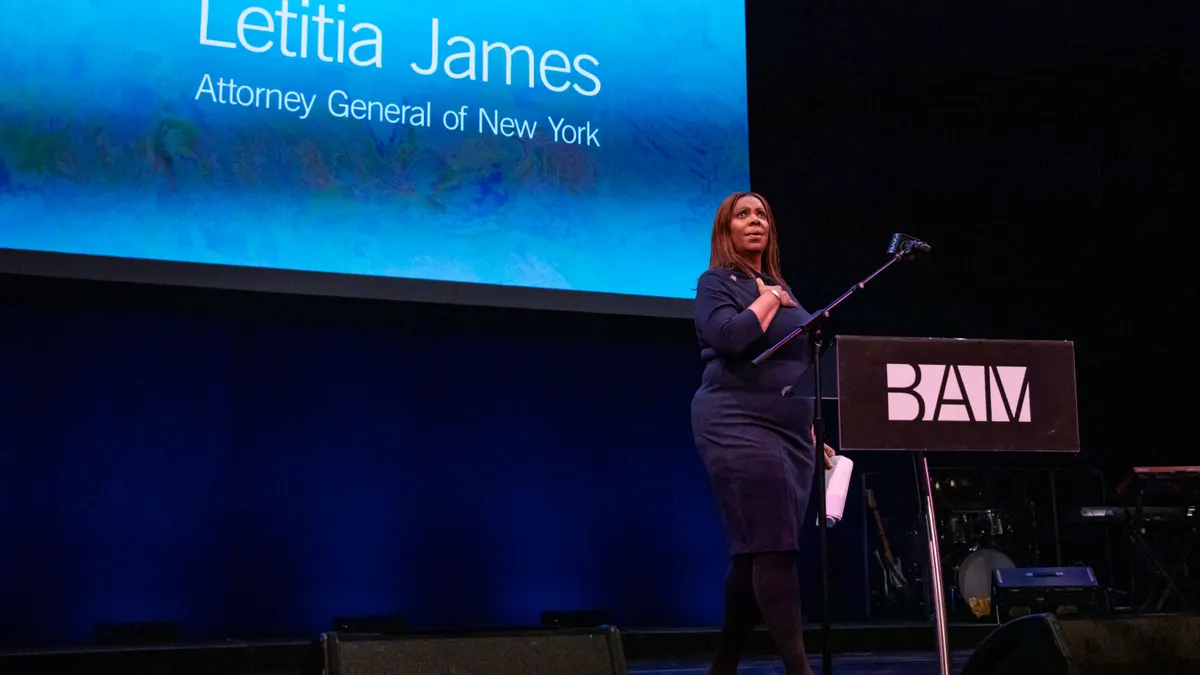Consumer Financial Protection Bureau Director Rohit Chopra minced no words Friday in a rare TV appearance, offering a critical view of the state of the U.S. payments sector.
Speaking on CNBC’s "Closing Bell" show, Chopra also took aim at the giant card network companies Visa and Mastercard over what he described as their plans to "hike fees at a time of inflation." Chopra argued that those increases on merchants would be unfair at a time when inflation is at a multi-decade high. "That just seems like insult to injury to a lot of businesses out there," he said.
From that statement, he took a broader swipe at the card companies' dominance of the industry. "We don't have a competitive (payments) system," Chopra said. "Many businesses cannot survive if they stop accepting Visa and Mastercard. So it's something that we're looking at carefully and honestly at a time of inflation. It just doesn't seem like the right thing to do."
The card companies say they put off increases in the past two years because of the impact of the COVID-19 pandemic on consumers and the economy. The companies now are gearing up to impose increases next month, according to a report from The Wall Street Journal this month, though Visa is preparing to cut fees for small businesses, according to a Reuters report.
When asked about what regulators could do to stop fee increases, Chopra offered a reminder that regulators do have the authority to step in. "When prices rise in tandem by dominant firms that always raises red flags for regulators," Chopra said.
Those sentiments echoed comments last year by U.S. Sen. Dick Durbin (D-IL), the majority whip in the Senate who has attacked the card companies for years over their fees.
Last year, Visa confirmed that its debit routing business is under investigation by the Justice Department. In addition, the debit routing practices of Visa and Mastercard have previously been under scrutiny from the Federal Trade Commission.
A spokesperson for Visa declined to comment, but a spokesperson at the merchant trade group FMI--The Food Industry Association weighed in.
“Director Chopra is absolutely correct that these increases come at the worst possible time and that the U.S. payments system lacks competition," said the FMI spokesperson, Jennifer Hatcher, who is also an executive committee member for the Merchants Payments Coalition. "We appreciate the attention he is bringing to this growing issue and his willingness to address it head on."
Chopra opines on BNPL
Chopra also gave an update on his bureau’s inquiry into the increasingly popular installment financing tool called buy now-pay later. "I do expect it to continue to grow," he said of BNPL.
"We're taking a look at the whole thing to see are there any regulatory gaps, but ultimately we do want more choices, more competition. So we're going to issue a set of reports to say what we might do and where we can make sure it's safe for consumers and families."
In December, the CFPB demanded information from the biggest buy now-pay later providers, saying it’s concerned that consumers using the new financial technology financing tool may accumulate too much debt as their purchasing data is mined for marketing.
Still, Chopra noted in the CNBC appearance that those fintech companies can provide needed competition in the payments industry. "Ultimately, we do want more choices, more competition," he said.
Chopra also noted that the balance sheets of U.S. consumers will feel the impact of Russia’s invasion of neighboring Ukraine in the sale of big-ticket items like automobiles and on consumer credit overall.
On the expanding use of cryptocurrencies, he said the agency was focused on making sure that consumers are protected from losses if and when crypto moves beyond mainly speculative trading to become more widely used by consumers. To that end, the agency has also demanded information from big tech companies with payment tools or plans in the area, including Apple, Facebook and Alphabet's Google, he noted.
"It's still a nascent market," Chopra said. "I think what we're tracking is how is this actually going to scale. Right now, it's mostly for speculative trading purposes, but if it ever rides the rails of a big player, maybe like a big tech company, consumer use could really dramatically grow and that's where we need to look closely at the consumer protection pieces of this."





















